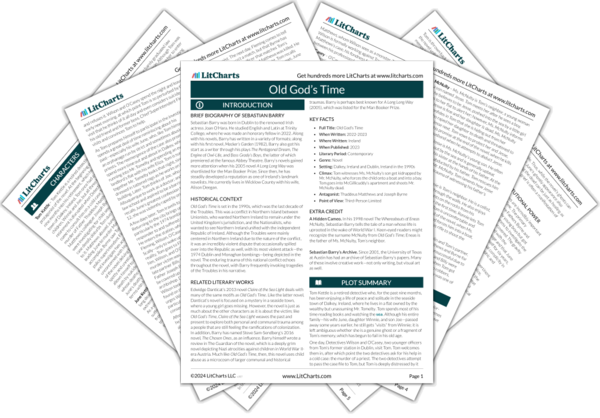Tom’s strong reaction to the case being about priests heavily suggests that he has a personal connection to the matter. His slipup in confessing that nobody was around to help
him further supports this, implying that Tom suffered some sort of trauma due to priests. Although the exact nature of this is not explicit, Wilson’s bashfulness over the case being “dirty business” hints at it being connected to a well-known issue in the Catholic church: the abuse of children at the hands of priests.
